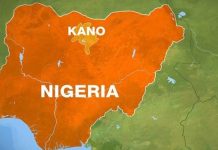
United Nations is the world largest body that brings Independent nations together as signatories. It mulls policy and guidelines differently to govern how-to or how-not-to go about certain actions.
The UN and its special agencies set aside days to celebrate feets, important aspects of human life and histories. These days give opportunity for its actors to organise activities that are related to their themes and areas of competence.
Language as a medium of communication is as old cum relevant as humans themselves. Thus, it became an important tool in both traditional and modern communication.
Paying courtesy to languages spoken by man doesn’t stop at the usual reading, writing and speaking — arts of Communication. For United Nations and some of the specialized bodies it embodied, language is honoured both by officially consented to be spoken at the UN’s General Assembly and by setting aside, particular day to celebrate its worth.
For example, 5th May was officially, in 2009 established by the Community of Portuguese-speaking Countries (CPLP) – an intergovernmental organization that has been in official partnership with UNESCO since 2000. However, UNESCO — United Nations Educational Scientific and Cultural Organization — declared on 2019, the 5th May every years, as World Portuegues Day. Also, Romani Language which has paltry 3.5 Million speakers, is celebrated 5th November to “promote the preservation of Romani language and culture, improve the well-being of Romani people” UNESCO has said.
Since 2012, every 18 December is been observed as World Arabic language day. On 23 April, English language Day is celebrated as approved by the United Nations which “seeks to increase awareness about the history, cultures and achievements associated with the English language,”
In a twist, to create feel of inclusion for other languages, February 21 is celeberated world wide as International Mother Language Day.
Hausa is an Afro-asiatic chadiac language spoken in mostly West-Africa subregion. A language with intriguing identity of its tribe.
Native speakers of the language have been dorminant in Northern Nigeria, Sourthern Nigér, Northern Cameroon and the Chad. A major turn around, in the history of Hausaland, in 1903 when British forces, led an invasion of Sokoto caliphate that housed largest number of Hausa speakers has led many emigrated to as distant as Sudan where they established new settlements and spread the language. Today, there are no fewer than 10 million Sudanese of Hausa origin.
The socio-economic strength of Hausa social groups, has, in the 1950s created a new multi-dimensional worldwide attention of the language. Modern media houses established Hausa services. British Broadcasting Company, BBC from 1957 started its Hausa service broadcasting; Germany’s Deutech welle radio from 1953; Voice of America 1979 and Radio France International since 2007 among other world services. Many Universities as well, are now runing one Hausa-languaged-based program or the other including Poland which has the best of Professors in Hausa language.
Online journalism and social media which is in the rise in Nigeria particularly and elsewhere, have also culminated into brightening the star of Hausa language in written and oral media.
This among other things, prompted Hausa native speakers online, six years ago started celebrating and observing, unofficially, Hausa Day, “Ranar Hausa”.
Habib Sani Galadima, social media user and a bilingual translator, desribed the day as the day of celebrating a resilient language that survived morethan 1000 years and still foaming. Habib flaunted how they celebrate the day by a language quiz, in which winners receive prizes of books.
In his open letter to Malam Dan-Hausa, Nurudeen Dauda, he defined it as a day “for soul searching to all Hausas in the world” where he doll out critique to the culture of Hausa society occassioned by begging infamously.
While scholars such as Salisu Uba Kofar wambai and Muhsin Ibrahim — a Hausa language student-scholar were concerned about strict compliance to correct Hausa orthography by writers and speakers, many, exploit sages and idiomatic expressions to show their appraisal of the language.
It’s partinent, as a close out to this contribution to note that a call on relevant official bodies whethers it is the UNESCO, UN, ECOWAS or Nigeria’s Ministry of Information and Culture, to consider declaring 26th August, officially, as Hausa Day owing to the richness, resilience and historic background of the Hausa as both a tribe and language.






































